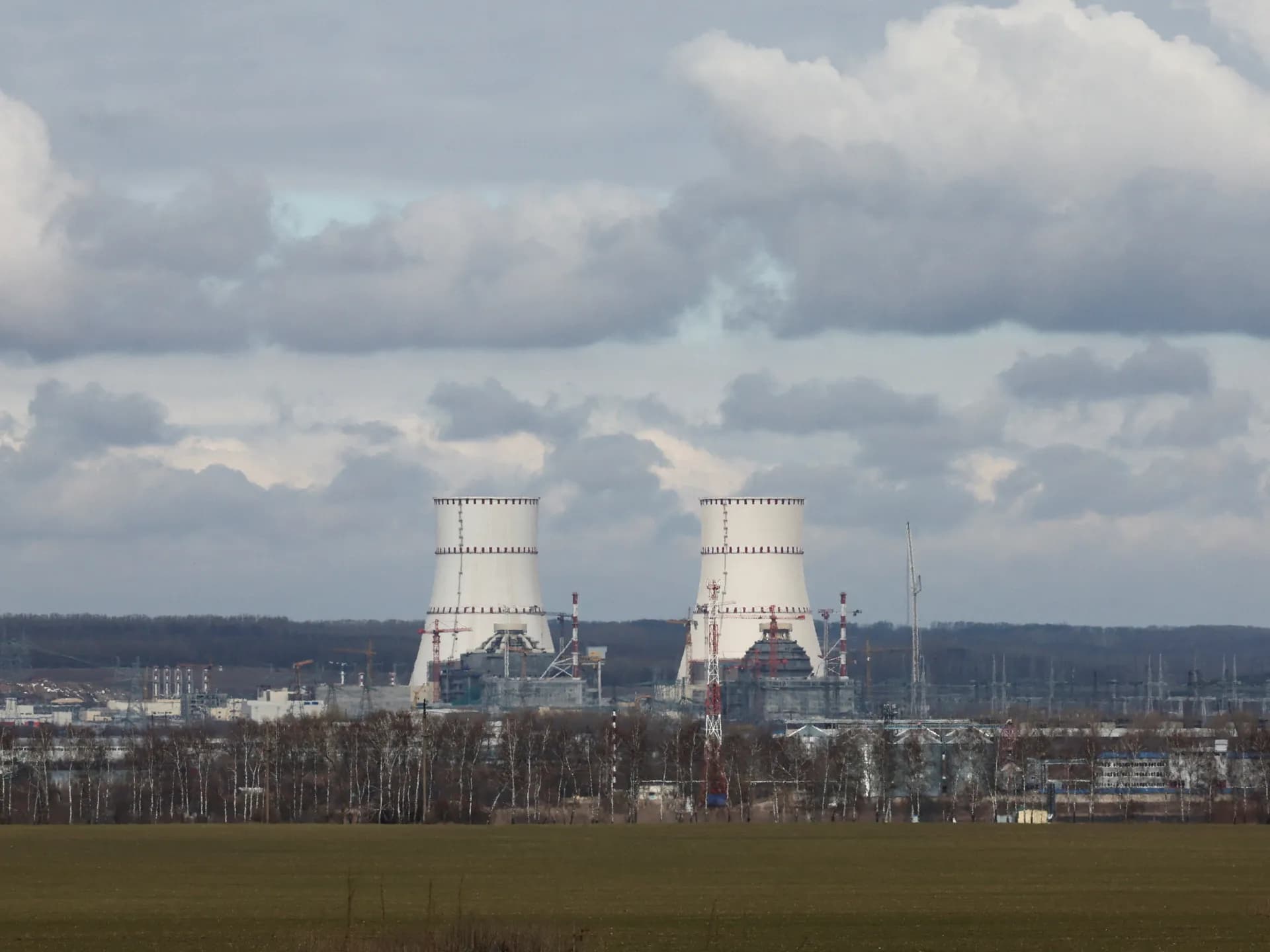We're loading the full news article for you. This includes the article content, images, author information, and related articles.
A recent Russian attack has severely damaged a Ukrainian thermal power plant, raising concerns about energy security as winter approaches. This development underscores the ongoing weaponisation of energy infrastructure in the conflict, with potential global implications.

KYIV, Ukraine – A thermal power plant in Ukraine sustained serious damage in a Russian overnight attack on Wednesday, October 8, 2025, according to Ukrainian authorities. This strike is part of an ongoing campaign by Moscow to disrupt Ukraine's access to heat, light, and running water as the colder months draw near.
DTEK, Ukraine's largest electricity operator, reported that two workers were injured in the assault. The company did not disclose the specific location of the affected plant, a common practice by Ukrainian authorities to avoid providing intelligence to the enemy.
The energy sector has been a critical battleground since Russia's full-scale invasion of Ukraine in February 2022. Each year, Russia has intensified efforts to cripple Ukraine's power grid ahead of winter, aiming to erode public morale and impede military manufacturing. Ukraine has consistently accused Moscow of using winter as a weapon of war.
In recent weeks, Russian forces have escalated their attacks on Ukraine's energy facilities. On Tuesday, October 7, 2025, an energy facility in Pryluky, Chernihiv region, was struck, leaving over 61,000 consumers without power. Ukrainian Minister of Energy Svitlana Hrynchuk stated that Russia launched more than 26 attacks on Ukrainian energy sites on October 7 alone.
Ukrainian authorities generally limit the release of details regarding strikes on their power grid to prevent providing strategic information to Russian forces. Repair crews, however, are working continuously to address the damage.
Internationally, Kenya has subtly shifted its stance on the Russia-Ukraine conflict. Initially a vocal critic of Moscow's invasion, Kenya has adopted a more neutral and non-aligned position, aligning with the G77 and African Group's approach to international disputes. This shift was outlined in a foreign policy sessional paper adopted by Parliament on Wednesday, June 4, 2025.
The human cost of these attacks is significant. Beyond the two injured DTEK workers, at least five civilians were killed and 37 others injured in Russian attacks across Ukraine over the past day, according to regional authorities on October 8, 2025. These strikes often target civilian areas and infrastructure, dismissing calls for a ceasefire.
The town of Shostka, in the northeastern Sumy region, has been particularly affected by the ongoing attacks on the power supply. Authorities there have established tents where residents can warm up, access hot tea, charge their phones, and receive psychological support.
Meanwhile, Kenya has engaged in diplomatic efforts with Russia regarding the welfare of its citizens. On Tuesday, October 7, 2025, Principal Secretary for Foreign Affairs, Korir Sing'oei, met with the Russian Ambassador to Kenya, Vsevolod Tkachenko, to address concerns over the irregular conscription of Kenyan citizens into the Russia-Ukraine conflict. Moscow has assured Nairobi of its policy of zero tolerance towards the involuntary recruitment of foreign nationals into its security forces.
The continued targeting of Ukraine's energy infrastructure poses a significant threat to the country's ability to provide essential services to its population, particularly during the harsh winter months. This strategy aims to inflict economic and humanitarian hardship, potentially leading to increased displacement and a further strain on international aid.
For Kenya, the conflict's broader implications include the safety of its citizens abroad and the need for robust diplomatic frameworks to prevent human trafficking and irregular conscription. The nation's evolving foreign policy seeks to balance international relations while safeguarding national interests.
The exact location of the damaged thermal power plant remains undisclosed by Ukrainian authorities. The full extent of the damage to the plant's equipment is still being assessed.
While Moscow denies official involvement in the recruitment of foreign nationals, reports from Ukraine indicate that several Kenyans have been captured while fighting for Russian forces, highlighting a persistent challenge in verifying recruitment practices.
Russia's campaign against Ukraine's energy infrastructure is expected to continue as winter progresses. Ukraine plans to increase natural gas imports by 30% to mitigate potential shortages, with a focus on securing imports for October to December 2025.
Kenya is working to formalize a migration framework with Russia to establish structured, transparent, and legal pathways for labor mobility, aiming to protect its citizens from exploitative schemes.
Observers will be watching the resilience of Ukraine's energy grid as winter deepens and the effectiveness of international efforts to provide air defense systems. The diplomatic efforts by Kenya to ensure the safety of its citizens in conflict zones and the implementation of new migration frameworks will also be key areas to monitor.
Keep the conversation in one place—threads here stay linked to the story and in the forums.
Sign in to start a discussion
Start a conversation about this story and keep it linked here.
Other hot threads
E-sports and Gaming Community in Kenya
Active 9 months ago
The Role of Technology in Modern Agriculture (AgriTech)
Active 9 months ago
Popular Recreational Activities Across Counties
Active 9 months ago
Investing in Youth Sports Development Programs
Active 9 months ago